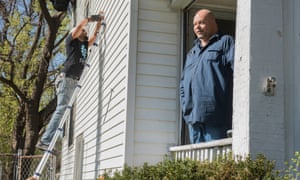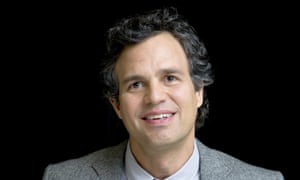Donald Trump’s decision to pull the US out of the historic Paris climate agreement
and turn his back on the other 194 countries that signed it leaves him
isolated on the world stage. But Trump is also isolated from the very
Americans he purports to lead, and here lies hope.
Across America, families, businesses, churches, institutions and governments are busy building a clean energy future. And no president can stop that.
When he announced he was pulling the US out of the Paris Accord, Trump said: “I was elected to represent the people of Pittsburgh, not Paris.” And that prompted the mayor of Pittsburgh to join other American mayors – more than 100 so far – in affirming his city’s commitment to move to 100% renewable energy.
This reflects the fact that the people of Pittsburgh – and Philadelphia and Phoenix and Salt Lake City and towns and rural areas across America – want clean energy in their backyards. In liberal areas and conservative ones, Americans are transforming the way they power their lives as we move to 100% clean energy for all.
Consider Buffalo, in upstate New York. Once an industrial powerhouse dotted with manufacturing and steel mill factories, it lost half its population in the second half of the 20th century and became the third-poorest big city in the United States.
It is home to exactly the kind of “forgotten” people Trump talked
about on the campaign trail. In a city featuring old houses and tough
winters, heating bills regularly cost more than rent for some. But in a
once blighted area on the West Side, hundreds of residents are working
with Push Buffalo – an organization Rahwa helps run – to weatherproof
homes, install solar energy systems and build a stronger community, all
while training local residents for good jobs in the emerging green
economy.
On the other side of the country, California’s Asian Pacific Environmental Network organized in eight different languages, from Korean to Cantonese, to secure $2bn for solar development in low-income housing projects.
And in South Los Angeles, a community group called Strategic Concepts in Organizing and Policy Education – Scope – is helping black, Latino and low-income communities of color take advantage of economic and job opportunities in the growing clean-energy economy.
But it’s not just city communities that are building a clean energy future that has the power to blunt the worst effects of climate change. So are rural American states, including states whose people voted for Trump.

Across America, families, businesses, churches, institutions and governments are busy building a clean energy future. And no president can stop that.
When he announced he was pulling the US out of the Paris Accord, Trump said: “I was elected to represent the people of Pittsburgh, not Paris.” And that prompted the mayor of Pittsburgh to join other American mayors – more than 100 so far – in affirming his city’s commitment to move to 100% renewable energy.
This reflects the fact that the people of Pittsburgh – and Philadelphia and Phoenix and Salt Lake City and towns and rural areas across America – want clean energy in their backyards. In liberal areas and conservative ones, Americans are transforming the way they power their lives as we move to 100% clean energy for all.
Consider Buffalo, in upstate New York. Once an industrial powerhouse dotted with manufacturing and steel mill factories, it lost half its population in the second half of the 20th century and became the third-poorest big city in the United States.
On the other side of the country, California’s Asian Pacific Environmental Network organized in eight different languages, from Korean to Cantonese, to secure $2bn for solar development in low-income housing projects.
And in South Los Angeles, a community group called Strategic Concepts in Organizing and Policy Education – Scope – is helping black, Latino and low-income communities of color take advantage of economic and job opportunities in the growing clean-energy economy.
But it’s not just city communities that are building a clean energy future that has the power to blunt the worst effects of climate change. So are rural American states, including states whose people voted for Trump.

Iowa produced over 36% of its electricity from wind power last year – a bigger share than any other state. South Dakota gets almost 70% of its electricity from water and wind. In Kansas, wind energy has grown from less than 1% of the state’s electricity generation in 2005 to 24% in 2015.
American businesses get it, too. Just ask Boeing, whose South Carolina airplane factory is powered by 100% renewable energy. Walmart, General Motors and other major US corporations are major customers for renewable power.
In our work with the Solutions Project and Push Buffalo, we have seen how clean and efficient energy projects are everywhere, from universities to churches, from factories to farms and from military bases to shopping malls.
Combatting climate change is an important motivation for many of these efforts. But we’ve seen that even Americans who don’t “believe” in climate change are embracing renewable energy. Some of them value cleaner air; others value energy independence and national security and others are called to care for creation.
Simplifying it all is the economics: as renewables become as affordable as fossil fuels – and even more affordable – they become more common, and economies of scale make them cheaper still.
And people in America are not only embracing these lower bills. They are embracing community ownership of renewable energy infrastructure, creating good local jobs and building local wealth. Their vision is to transform America’s energy economy from a draining and extractive model to a regenerative and sustainable model that makes communities – and the nation – stronger.
Time and again, Donald Trump has promised to help forgotten, hard-hit Americans. But trying to hold back the rising tide of clean energy will not help them – and it won’t work, anyway. If Trump truly cared about making life better for the people he was elected to lead, he would join his fellow Americans – and the rest of the world – in building a prosperous, sustainable clean energy future.
The people of this country will keep helping themselves – to renewable energy. They are putting this country and their communities first, in a way that also serves the planet. The US and the rest of the world will continue our historic march to clean energy for all – no matter who’s in the White House.
Rahwa Ghirmatzion is deputy director of Push Buffalo, a local membership-based community organization fighting to make affordable housing and a just transition to clean energy a reality
Mark Ruffalo is an actor and the co-founder of the Solutions Project, which works to accelerate the transition to 100% clean, renewable energy for all people and purposes

No comments:
Post a Comment